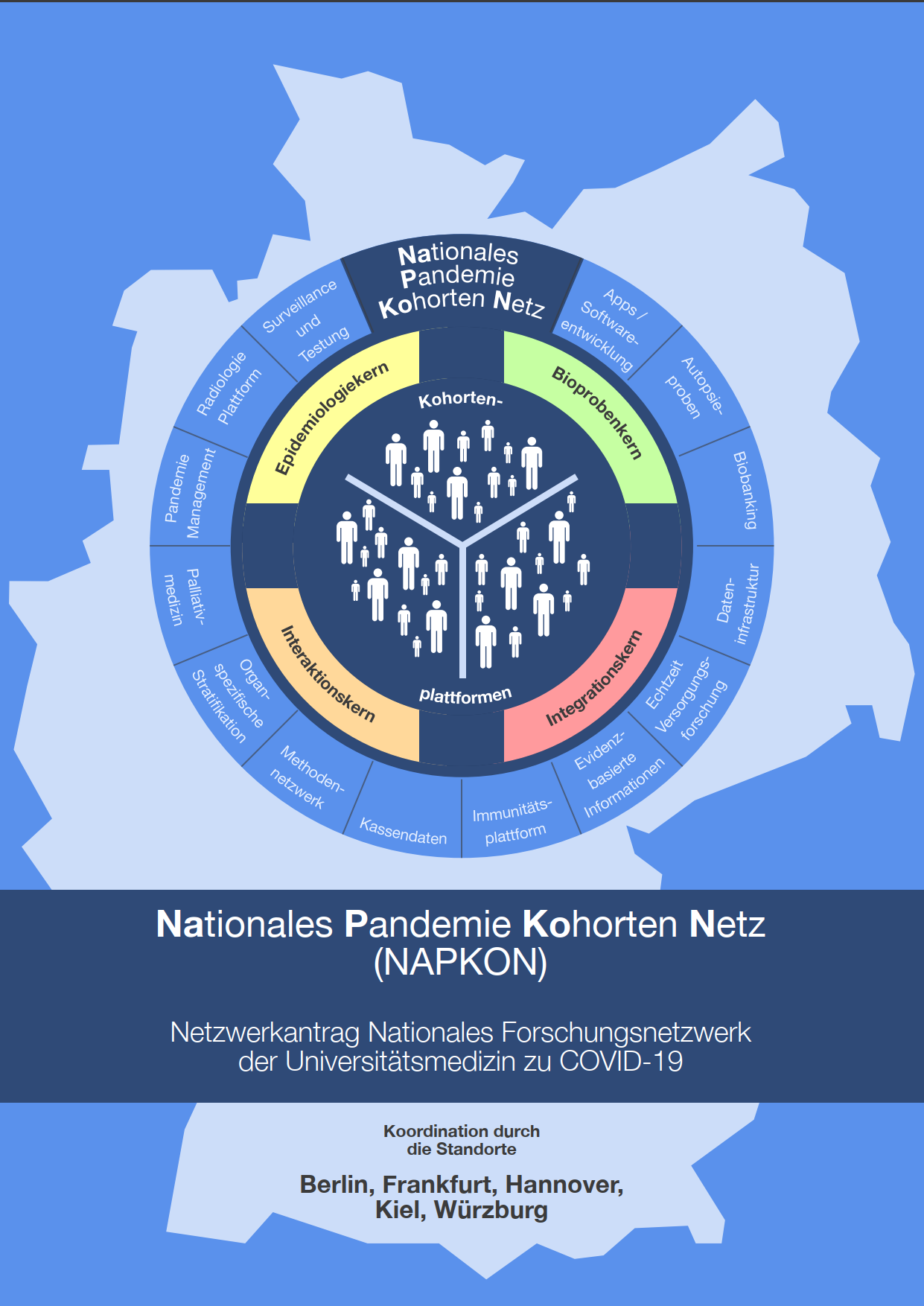About the project
With the National Pandemic Cohort Network (NAPKON), a sustainable network has been established that can collaborate quickly across disciplines and locations in the event of future medical challenges.
NAPKON has created a Reseach Infrastructure and three complementary cohort platforms that systematically record the acute and chronic course of COVID-19 in a modular and representative manner in subgroups. By working together with the infrastructure components, these platforms enable the consolidation of regionally collected scientific data, image data and biosample collections at a national level. This has enabled harmonised, prospective observation of COVID cases representative of the whole of Germany since autumn 2020.
In this way, a harmonised, expandable and national network has been established that offers the opportunity to support the fight against the current COVID-19 pandemic and its consequences as well as future pandemics.
The most important facts at a glance
The aim was to strengthen cooperation between doctors, scientists and care centres in Germany, to develop a central Reseach Infrastructure for harmonised data collection, output and quality assurance and to use three complementary cohorts to create an improved basis for successfully understanding and thus combating the COVID-19 pandemic in Germany and worldwide.
The COVID-19 pandemic caused by the novel SARS-CoV-2 virus has led to a global public health emergency. Societies, healthcare systems and economies of the affected countries have been faced with an enormous challenge: There was an urgent need for standardised and collaborative research.
In particular, findings with particular phenotyping depth from high-quality data and biosample collection were urgently required. To date, these have only been addressed in isolated cases in local projects, but neither in national nor in international projects. In addition, national and permanent pandemic management for the best possible handling of known or novel pathogens in Germany was and continues to be of great importance.
A particular challenge in the prevailing pandemic situation was to establish a future-proof and sustainable network with the limited resources available.
The centralised and cross-platform infrastructure, which consists of an interaction, epidemiology, biospecimen and integration core, ensured the highest possible quality. The infrastructure was complemented by three cohort platforms (Population based platform, High Resolution Platform and Cross-sector platform), which are orientated towards different target sizes and varying patient groups in order to be transferable and scalable to new pandemic situations.
In close collaboration with experts from all healthcare sectors, a network was established in the project using the current COVID-19 pandemic as an example, which enables time- and cost-efficient use of resources with high data and biosample quality. Thanks to centralised coordination and access options, an initial collection of data and biosamples for scientific and healthcare-related research projects could be addressed comprehensively and with very low latency, and representative, evidence-based findings on pandemic-specific risk factors, disease progression and consequences could be generated.
The National Pandemic Cohort Network (NAPKON) has established a cooperation of 35 university hospitals, 18 clinics and 16 medical practices for the medical management of the pandemic, which is unique in Germany to date - and which continues to grow and provide a joint medical capacity for action in the future. Around 1,500 people (mainly doctors, study coordinators and scientists, but also other professional groups) have been involved in NAPKON across disciplines and locations, providing their expertise, shaping the project and ensuring that the study runs smoothly. Democratic participation processes were established to enable lively teamwork.
In terms of content, a concept was created that explored the disease COVID-19 from different perspectives. In three cohorts with different recruitment criteria, more than 4,600 patients (as of January 2022) are contributing their data to research into the acute and long-term consequences of the study. The research infrastructure developed in NAPKON will be continued as the NUM Clinical Epidemiology and Study Platform (NUKLEUS) in the NUM infrastructure line.







